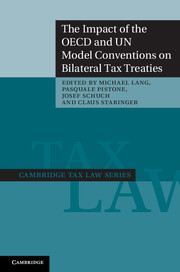Book contents
- Frontmatter
- Contents
- Contributors
- Preface
- Table of cases
- Table of statutes
- General report
- 1 Argentina
- 2 Australia
- 3 Austria
- 4 Belgium
- 5 Brazil
- 6 Canada
- 7 Chile
- 8 China
- 9 Colombia
- 10 Croatia
- 11 The Czech Republic
- 12 Estonia
- 13 Finland
- 14 France
- 15 Germany
- 16 Hong Kong
- 17 Hungary
- 18 India
- 19 Italy
- 20 Lebanon
- 21 Liechtenstein
- 22 The Netherlands
- 23 New Zealand
- 24 Norway
- 25 Peru
- 26 Poland
- 27 Portugal
- 28 Romania
- 29 The Russian Federation
- 30 Serbia
- 31 Slovakia
- 32 Slovenia
- 33 Spain
- 34 Sweden
- 35 Uganda
- 36 The UK
- 37 The USA
- Index
- References
32 - Slovenia
Published online by Cambridge University Press: 05 November 2014
- Frontmatter
- Contents
- Contributors
- Preface
- Table of cases
- Table of statutes
- General report
- 1 Argentina
- 2 Australia
- 3 Austria
- 4 Belgium
- 5 Brazil
- 6 Canada
- 7 Chile
- 8 China
- 9 Colombia
- 10 Croatia
- 11 The Czech Republic
- 12 Estonia
- 13 Finland
- 14 France
- 15 Germany
- 16 Hong Kong
- 17 Hungary
- 18 India
- 19 Italy
- 20 Lebanon
- 21 Liechtenstein
- 22 The Netherlands
- 23 New Zealand
- 24 Norway
- 25 Peru
- 26 Poland
- 27 Portugal
- 28 Romania
- 29 The Russian Federation
- 30 Serbia
- 31 Slovakia
- 32 Slovenia
- 33 Spain
- 34 Sweden
- 35 Uganda
- 36 The UK
- 37 The USA
- Index
- References
Summary
The relevance of the OECD and UN Model Conventions and their Commentaries for the interpretation of Slovenian tax treaties
Introduction
Slovenia as a Member State of the EU and the OECD currently has fifty treaties, forty-seven of which are in force, while three have been ratified but are not yet effective. Among these are some that were already ratified and in use during the period when Slovenia was a part of the Socialist Federal Republic of Yugoslavia (SFR Yugoslavia). Two of these are still effective, i.e. the treaties with Cyprus and Sweden. The treaties can be divided into two major groups: the old ones still in force adopted by the former Yugoslavia and those concluded in the post-independence era, i.e. after 1991. The oldest ones in that sense are the treaties with China and the Russian Federation (1995), followed by those with Poland and Switzerland (1996).
Most of the treaties are in compliance with the OECD Model Tax Convention on Income and on Capital (OECD Model) and the United Nations Model Double Taxation Convention between Developed and Developing Countries (UN Model), but some deviate in certain respects, as will be explained in this chapter.
Relevance of the Models and the respective Commentaries
The OECD and UN Models as well as their Commentaries are usually used together with relevant sources in order to explain and interpret Slovenian tax treaties.
The tax treaties adopted by the former Yugoslavia followed the 1977 OECD Model. After Slovenia’s independence, the 1992 OECDModel was followed. All new treaties since then are concluded on the basis of the 1997 OECD Model.
- Type
- Chapter
- Information
- Publisher: Cambridge University PressPrint publication year: 2012

